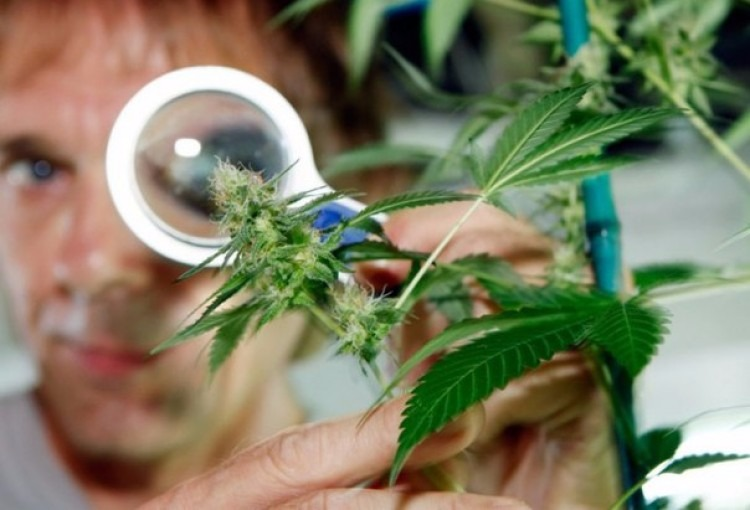Medical Benefits of Marijuana
The beneficial properties of cannabis have been known to humans since ancient times. Our ancestors actively used this plant to treat a variety of diseases, ranging in severity. In the 19th century, many painkillers, healing ointments, tinctures, and drops were made from cannabis and sold freely. However, in the early 20th century, cannabis faced criticism and persecution, leading to its complete ban.
Today, there is little doubt about the health benefits of cannabis, which can often have a more positive effect on human health than similar synthetic drugs. More and more countries are supporting the legalization of medical cannabis, which can effectively help people without causing negative side effects.
What Are the Health Benefits of Cannabis?
Cannabis as an Analgesic
Cannabinoids found in cannabis can block brain receptors responsible for pain sensations. Experiments have shown that, when combined with opiates, cannabinoids provide maximum pain relief even at low doses. This allows people suffering from various types of cancer, multiple sclerosis, and other serious illnesses with severe pain symptoms to not only relieve pain but also reduce or even eliminate the use of narcotic drugs.
It has been found that THC, the main active cannabinoid, is as effective at relieving pain as the opium alkaloid codeine and other lesser-known oncology drugs. Later, British scientists discovered that in some cases, cannabinoids can help where even morphine is ineffective. This inspired American and European researchers to develop a completely new, revolutionary painkiller.
After extensive experiments, scientists at the U.S. Institute of Medicine proved that the active substances in cannabis can be used without causing severe side effects for:
- Relieving pain after surgery and chemotherapy
- Treating insomnia
- Alleviating chronic neuropathic pain
- Reducing pain in HIV-positive individuals
- Managing post-traumatic pain symptoms
- Treating peripheral neuropathic pain
Marijuana for Nausea
Cannabis can relieve nausea after chemotherapy and improve appetite in AIDS patients. This is one of the most significant medical effects of THC. It is most often used in treating young patients, as elderly patients are more sensitive to side effects such as memory impairment and hallucinations.
Marijuana is also actively used to treat symptoms of motion sickness and stomach pain.
Cannabis and Glaucoma
In the 1970s, it was observed that cannabis use immediately lowers intraocular pressure. At the time, the reason for this was unknown. Later, it was theorized that cannabis interacts with CB1 receptors located in the eye.
Today, cannabis is actively used to treat glaucoma. At the same time, researchers are developing a medication that will not be taken orally but will act directly on the eye through physical contact. This will help reduce the risk of cannabis dependence. Even now, it is known that treating glaucoma with cannabis does not harm the kidneys or liver, unlike many other drugs.
Cannabis and Multiple Sclerosis
Multiple studies have shown that cannabinoids can effectively relieve muscle spasms, tremors, and pain in multiple sclerosis and other diseases accompanied by muscle pain.
Unfortunately, an effective medication has not yet been created, but the likelihood of developing a potent drug based on cannabinoids is very high. Research in this area is ongoing. According to doctors, cannabis may protect the human nervous system from damage caused by this disease.
Cannabis for Asthma
It has been scientifically proven that inhaling cannabis smoke can relieve asthma attacks. It has a positive effect on the bronchi, reducing spasms. There is a wealth of medical literature on this topic, written by doctors and scientists.
Antibiotic Properties
Even in ancient times, people used the pulp of young cannabis plants as a natural antibiotic. They made decoctions, ointments, and other medicines from it, which effectively fought harmful bacteria and microorganisms.
Other Health Benefits of Marijuana
- The active compounds in cannabis can effectively fight the herpes virus.
- Cannabis extract has expectorant properties and is used to remove harmful substances from the lungs, such as those found in tobacco smoke and urban dust.
- Cannabis can dilate blood vessels throughout the body, helping to lower blood pressure when other medications are contraindicated.
- Cannabis can effectively combat insomnia and also increases the duration of deep sleep, which is essential for the body’s recovery.
- Marijuana is an excellent relaxant, capable of relieving stress, fatigue, and nervous tension.



